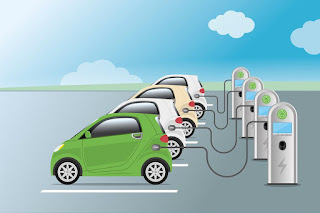Why Is the Uptake of Electric Vehicles So Slow?

There has been a lot of talk about electric vehicles over the past few years. They were supposed to have stormed the roads and reduced emissions so we could tackle this climate change problem we have on our hands. But, so far there has been noticeably little action in the world of electric vehicles. The streets are not flooded with them and charging points around big cities are few and far between. What is keeping us from embracing electric vehicles when we know the benefits they offer? The key selling point of the electric vehicle is the fact that it emits zero emissions. This has a positive knock on effect on the air quality and the environment as a whole. On top of this, electric vehicles are generally cheaper to run and maintain, although the initial cost may be more than a traditional car. In the long run, these cars will help us save money. They are even quieter than regular cars! So, what’s the deal? Unfortunately, there are still some drawbacks when it comes to elect